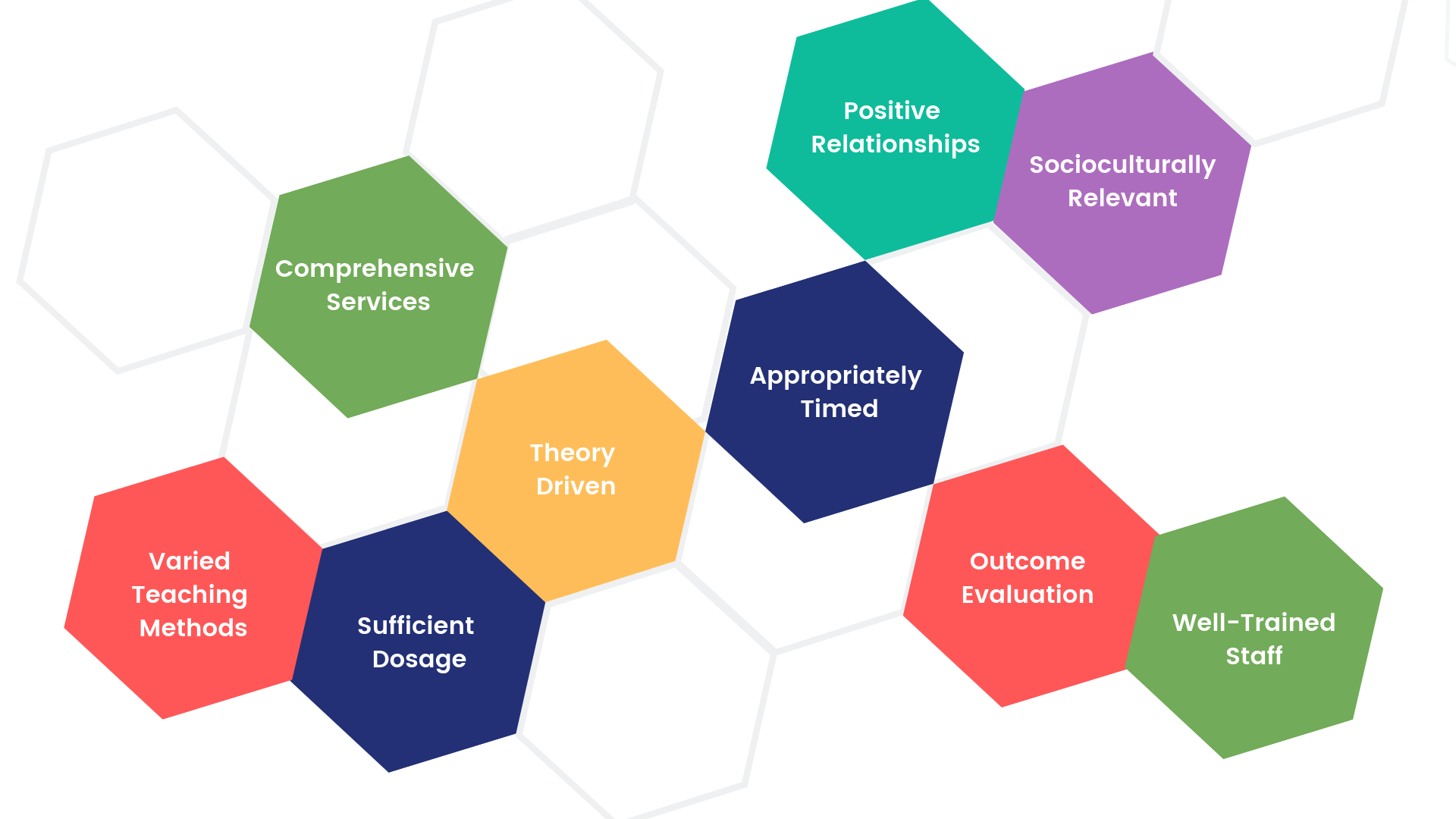CARE utilizes research-informed and evidence-based approaches to prevention education that are rooted in the public health model and best practice.
The Nine Principles of Prevention:
- Comprehensive Services
Strategies should include multiple components and affect multiple settings to address a wide range of risk and protective factors of the target problem.
- Varied Teaching Methods
Strategies should include multiple teaching methods, including some type of active, skills based component.
- Sufficient Dosage
Participants need to be exposed to enough of the activity for it to have an effect.
- Theory Driven
Preventive strategies should have scientific or logical rationale.
- Positive Relationships
Programs should foster strong, stable, positive relationships.
- Appropriately Timed
Program activities should happen at a time (developmentally) that can have maximum impact in a participant's life.
- Socio-culturally Relevant
Programs should be tailored to fit within cultural beliefs and practices of specific groups, as well as local community norms.
- Outcome Evaluation
A systematic outcome evaluation is necessary to determine whether a program or strategy worked.
- Well-Trained Staff
Programs need to be implemented by staff members who are sensitive, competent, and have received sufficient training, support, and supervision. Follow up (booster) training and technical assistance to staff are critical.
